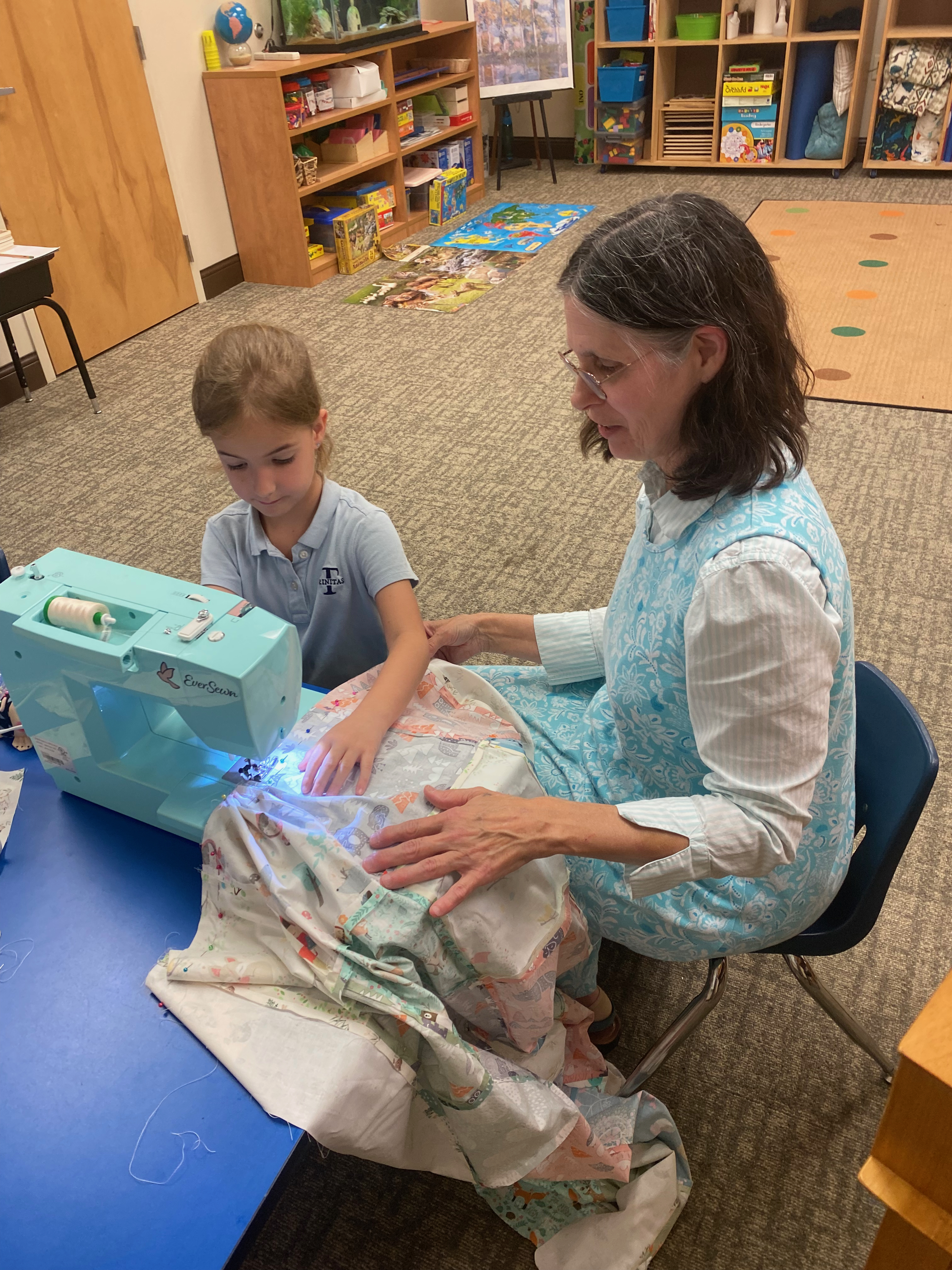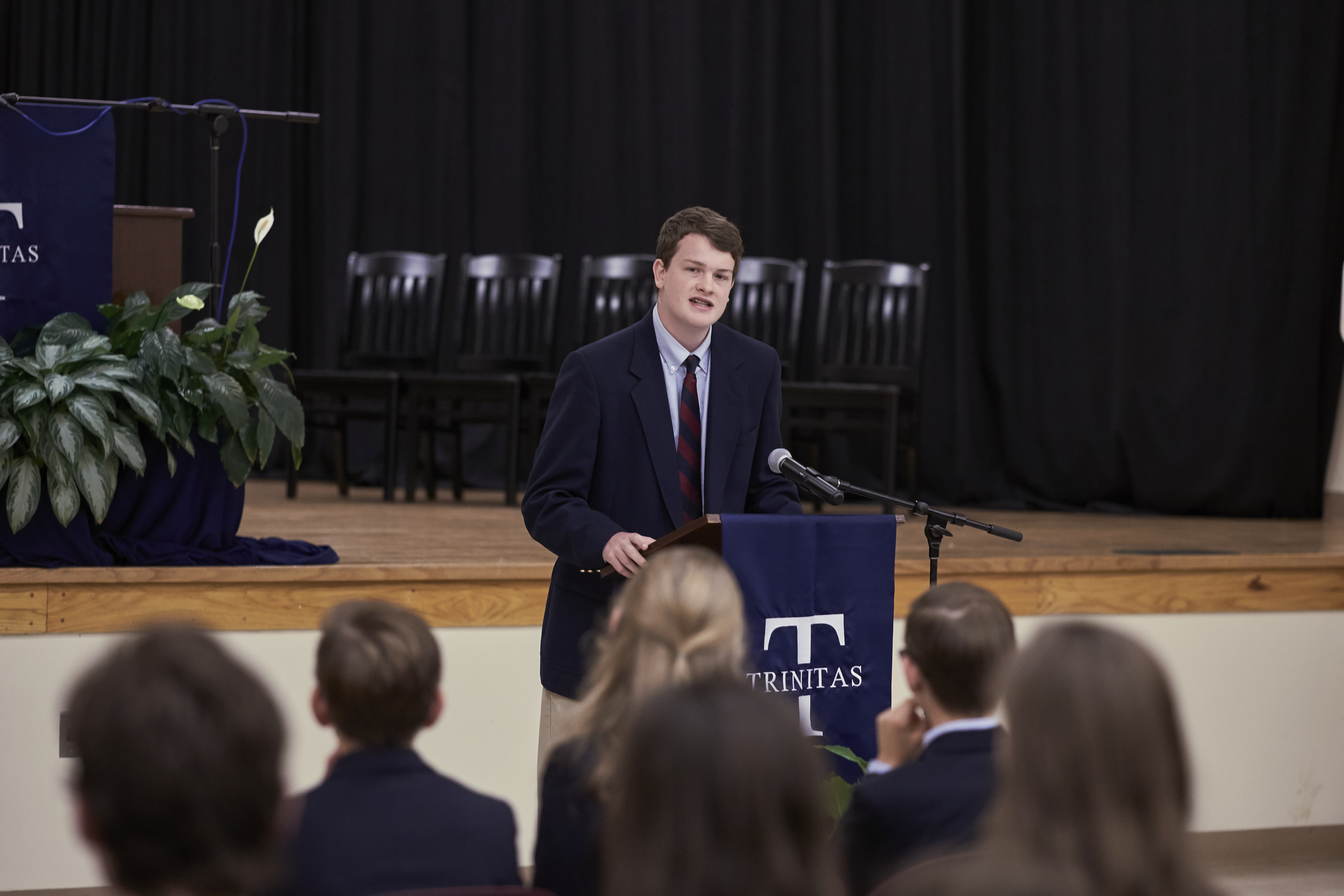If we surveyed 100 Americans in the year 2020 for their understanding of vita bona, or the good life, we probably would not get 100 different answers. In fact, we would likely get an overwhelming consensus. Our popular conception of the good life, according to Francis Schaeffer in his timeless classic, How Should We Then Live, is peace and affluence. We desire to live in undisturbed comfort with every possible convenience at our fingertips. We have developed an uncanny ability (or maybe we were born with it) for justifying anything that helps us maintain peace and affluence. Change is not in our nature and especially if it means taking a contentious or unpopular position or diminishing our wealth. But Jesus came with a sword, not peace (Matt 10:34), and he commanded us to lay up treasures in heaven, not on earth (Matt 6:19-20).
Two chief goals of classical education are to help students become lifelong learners and to give them the tools they need be successful at learning for the rest of their lives. While a person may catch the bug for learning any time in life, there is no better season for inspiring that love of learning right down into a person’s bones than in the early years before he or she becomes a teenager.
Topics: Blog Posts, Classical Education, True Education
Even though we are barely halfway through the school year, this is enrollment season, and classes are already filling up for next year. Families are touring the school, meeting with our admissions counselor, and drawing comparisons between classical Christian and other models. At Trinitas our kindergarten classes are nearing full and we have accepted a few students for other open seats in the grammar school. The grammar school is where most of our effort to bring in new students is focused. There are two other natural entry points for schools: seventh and ninth grades. While we do accept students in those grades occasionally, it can be difficult to enter a classical school that late in one’s academic career, especially as late as ninth grade.
Topics: Blog Posts, Classical Education, Classical Languages
One of the mantras of classical Christian education is “repair the ruins.” The line comes from John Milton, that seventeenth century English poet and intellectual who wrote the classic, Paradise Lost. Milton wrote on a host of other topics, including education, and once wrote,
“The end then of learning is to repair the ruins of our first parents by regaining to know God aright, and out of that knowledge to love him, to imitate him, to be like him.”
The classical educator sees himself as a servant in this labor, a guide to his students. But repairing the ruins and redeeming truth, goodness, and beauty which has been lost by our culture is not confined to the classroom.
Topics: Blog Posts, School Life, Classical Education, Christian Living
Parents who send their children to classical schools often have to defend that decision to their siblings, their friends, and even their own parents. The conversations can be tense, and especially so if everyone involved received a free public education. It isn’t as though your friends and relations know a lot about education; it is more likely their opinions have been informed by public debate, federal initiatives, and the latest trends. If the parents defending classical are sacrificing financially to afford the education, they often find themselves doubly on the defense. Points of debate include uniforms, classroom rigor, Latin, and always, always classical education’s lack of emphasis on STEM.
Topics: Blog Posts, Technology, Classical Education
Classical Education Creates Renaissance Men and Women
As the school year winds down, we enter the season for reflection. For students, now is time for final performances, academic awards, and the accumulation of all kinds of accolades for the year. I am always a little in awe of Trinitas students as I look back over their accomplishments and realize all they have done, and done well, in a single year. Surely this euphoria upon reflection holds true for any hardworking student in any school—it is not reserved for Trinitas students. I am, however, always amazed at the number of Trinitas students who do so very well over the year in such a wide variety of activities. What I have found is that classical education exposes students to a broad range of experiences and then provides opportunities for students to learn, perform and compete in activities as different as baseball and drama. By encouraging students to drink deeply from many fountains of knowledge rather than specializing in one, classical education creates Renaissance men and women.
Topics: Blog Posts, School Life, Classical Education, True Education
At other times we have written here about the importance of the home, church, and school being in agreement, and it is a message that bears repeating. Those three entities have the most influence over a child’s formation. If the home, church, and school have different messages about who God is or who His people are or how they are called to live, a child’s mind will be divided on issues that are foundational to her existence. For a child to flourish spiritually and emotionally, hearing a consistent message from home, church, and school is necessary. By that same standard, a classical education cannot take root and flourish in the life of a child if it isn’t being supported at home.
Topics: Blog Posts, School Life, Parenting, Classical Education, Parent Involvement, Video Games, Reading, Truth, Goodness, and Beauty
Why High School Seniors Should Write and Defend a Thesis
The seniors at Trinitas Christian School recently finished their senior thesis project. Trinitas is not the only school where seniors write and defend a thesis as a requirement of graduation. Thesis papers, and sometimes a defense of those papers, are a requirement in most classical schools and some prep schools around the country. It is a good project to cap off a high school career and prepare for the next step, which is almost always college for Trinitas grads.
Topics: Blog Posts, Classical Education, Thesis Projects


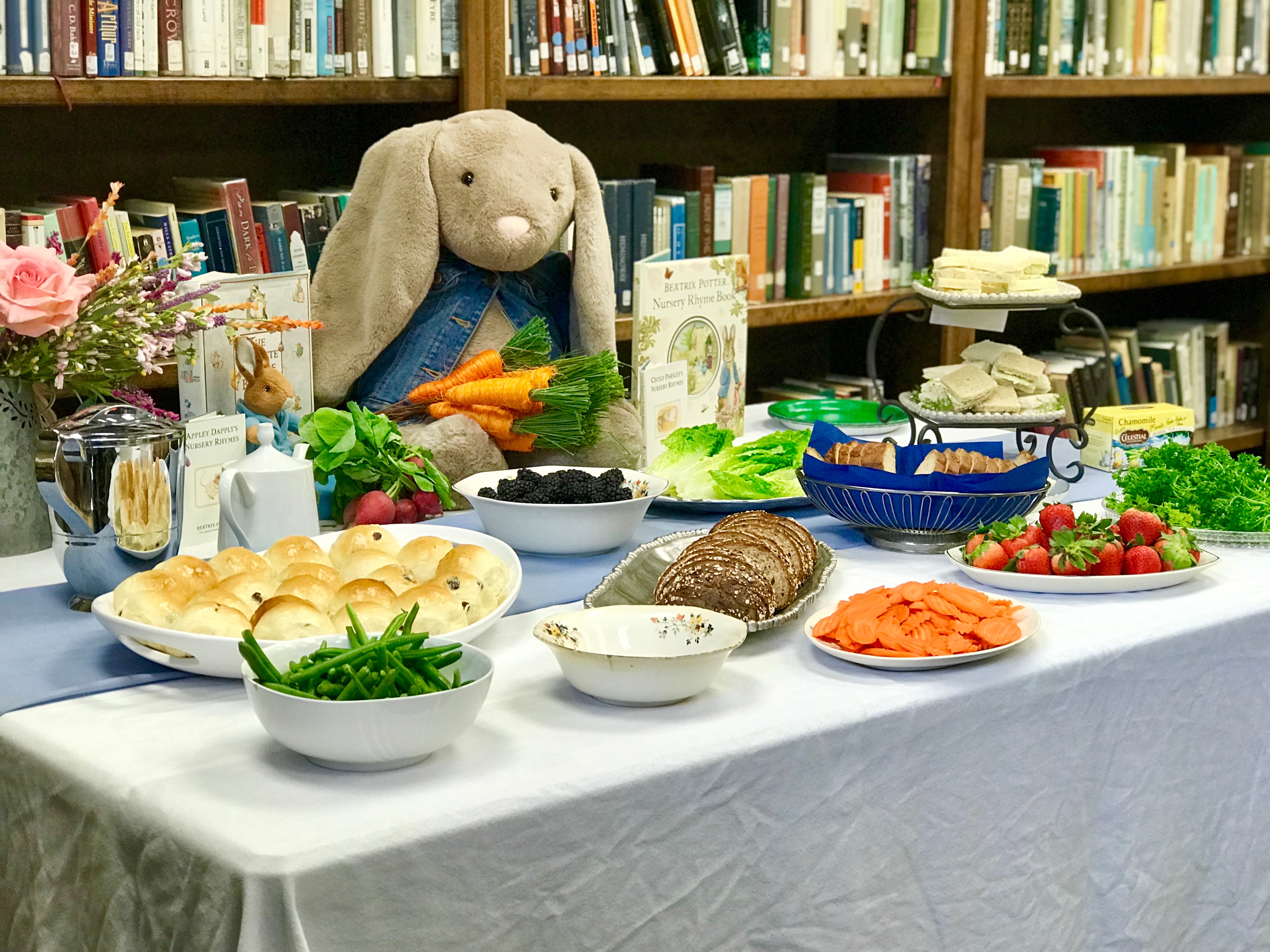
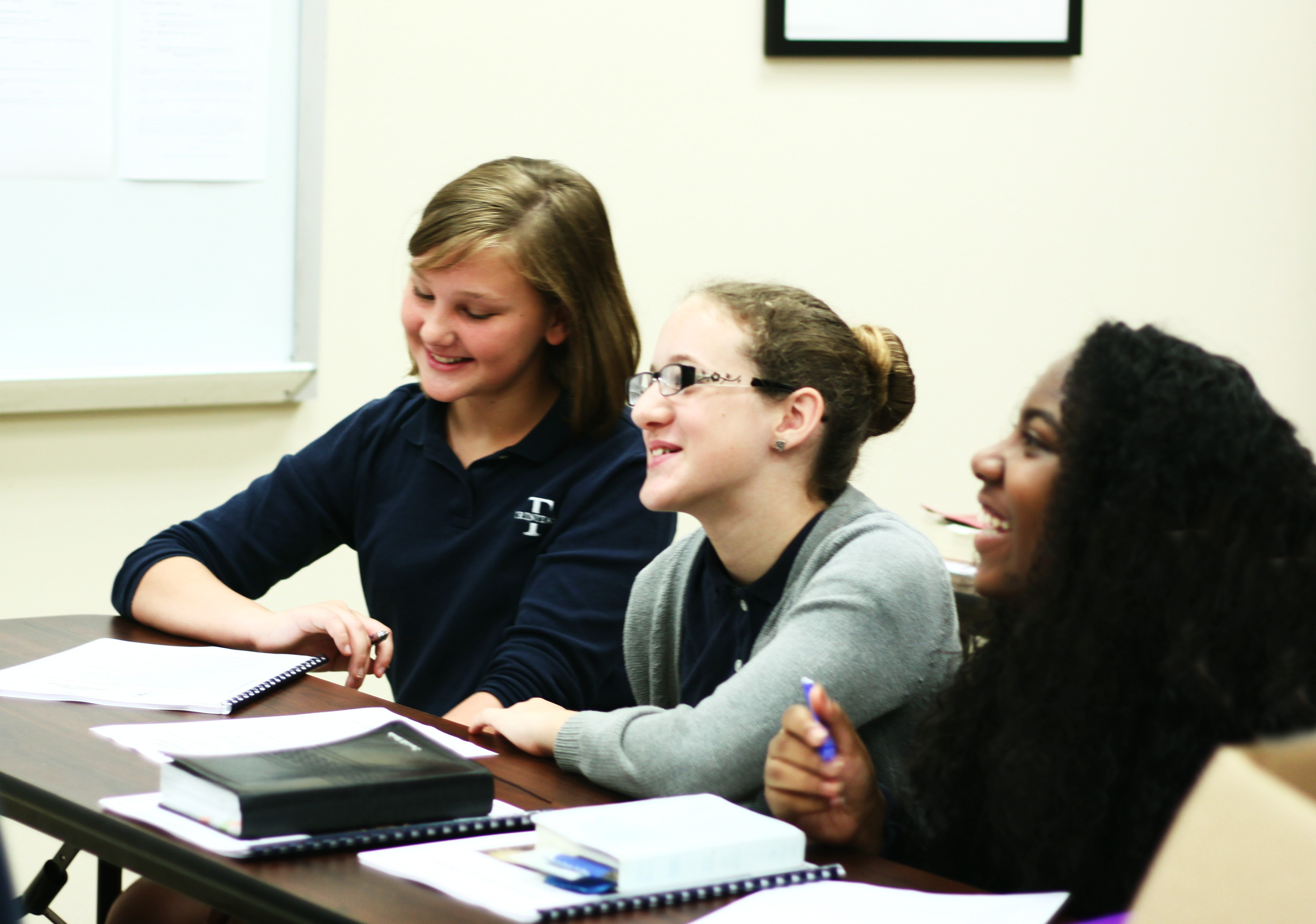
.jpg)
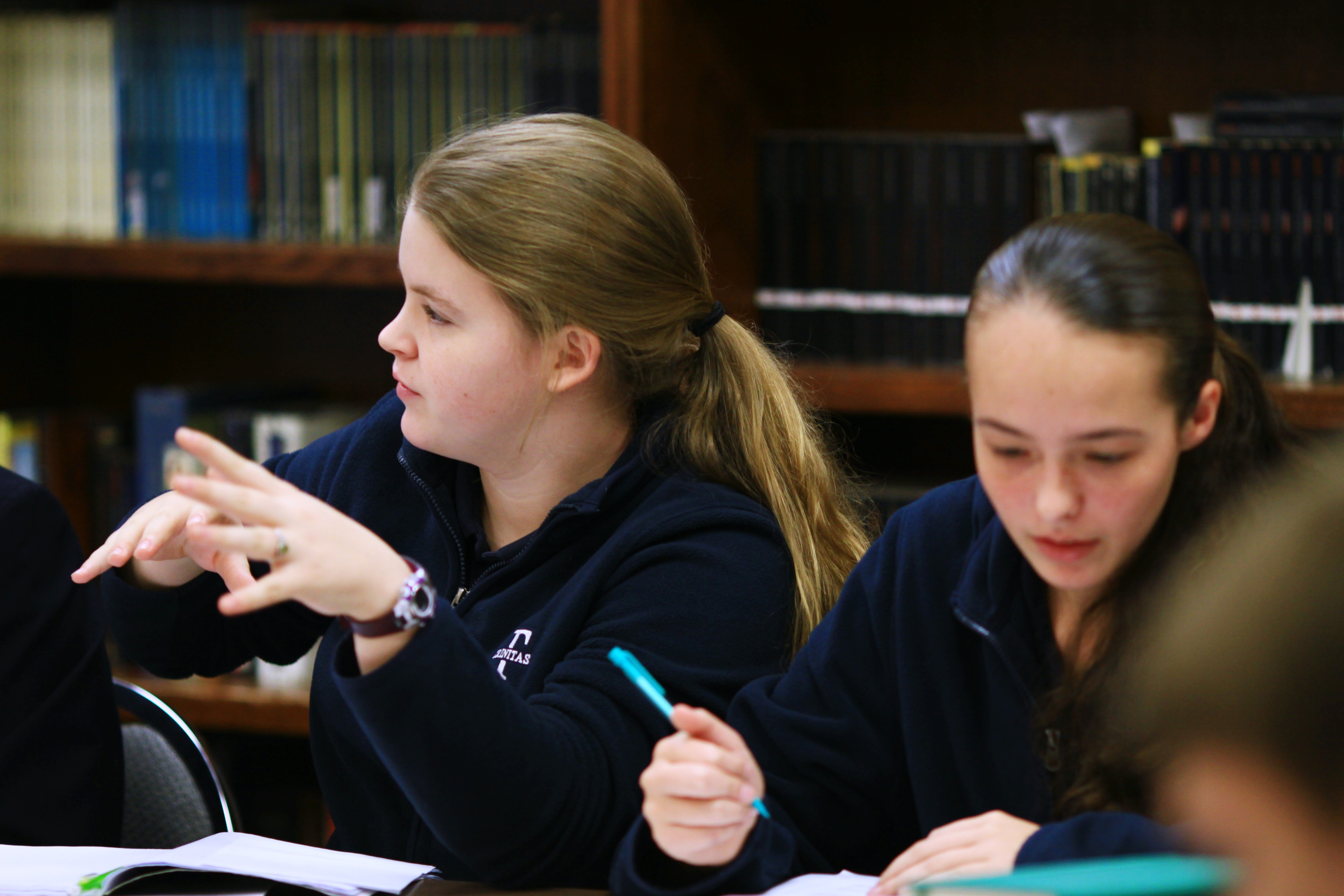
.jpg)
